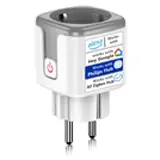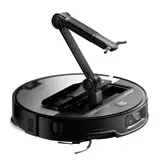We use information collected through cookies and similar technologies to improve your experience on our site, analyze how you use it and for marketing purposes.
Your privacy settings
We and our partners use information collected through cookies and similar technologies to improve your experience on our site, analyze how you use it and for marketing purposes. Because we respect your right to privacy, you can choose not to allow some types of cookies. However, blocking some types of cookies may impact your experience of the site and the services we are able to offer. In some cases, data obtained from cookies is shared with third parties for analytics or marketing reasons. You can exercise your right to opt-out of that sharing at any time by disabling cookies.
Manage Consent Preferences
Necessary
Always ON
These cookies and scripts are necessary for the website to function and cannot be switched off. They are usually only set in response to actions made by you which amount to a request for services, such as setting your privacy preferences, logging in or filling in forms. You can set your browser to block oralert you about these cookies, but some parts of the site will not then work. These cookies do not store any personally identifiable information.
Analytics
These cookies and scripts allow us to count visits and traffic sources, so we can measure and improve the performance of our site. They help us know which pages are the most and least popular and see how visitors move around the site. All information these cookies collect is aggregated and therefore anonymous. If you do not allow these cookies and scripts, we will not know when you have visited our site.
Embedded Videos
These cookies and scripts may be set through our site by external video hosting services likeYouTube or Vimeo. They may be used to deliver video content on our website. It's possible for the video provider to build a profile of your interests and show you relevant adverts on this or other websites. They do not directly store personal information, but are based on uniquely identifying your browser and internet device. If you do not allow these cookies or scripts it is possible that embedded video will not function as expected.
Google Fonts
Google Fonts is a font embedding service library. Google Fonts are stored on Google's CDN. The Google Fonts API is designed to limit the collection, storage, and use of end-user data to only what is needed to serve fonts efficiently. Use of Google Fonts API is unauthenticated. No cookies are sent by website visitors to the Google Fonts API. Requests to the Google Fonts API are made to resource-specific domains, such as fonts.googleapis.com or fonts.gstatic.com. This means your font requests are separate from and don't contain any credentials you send to google.com while using other Google services that are authenticated, such as Gmail.
Marketing
These cookies and scripts may be set through our site by our advertising partners. They may be used by those companies to build a profile of your interests and show you relevant adverts on other sites. They do not store directly personal information, but are based on uniquely identifying your browser and internet device. If you do not allow these cookies and scripts, you will experience less targeted advertising.






Smoke and gas detectors: protecting your home from fires
Your home is your sanctuary. You want to feel safe, right? Fires are one of the biggest threats to home safety. But did you know that most house fires are preventable? One of the best tools to achieve this is smoke and gas detectors. They work like your silent guardians, always vigilant to alert you to danger. In this article, we'll tell you everything you need to know about these vital devices for your family's safety.
What are smoke and gas detectors and why are they important?
Smoke and gas detectors are electronic devices designed to detect the presence of smoke or hazardous gases in the air. Their primary function is to alert you to a potential fire or gas leak, giving you time to evacuate and take steps to protect your loved ones and your property. They're a crucial investment for your home's security and your peace of mind.
How do smoke detectors work?
There are primarily two types of smoke detectors:
Most experts recommend having both types of detectors at home, or dual detectors that combine both technologies, for more comprehensive protection.
How do gas detectors work?
Gas detectors work differently. They're designed to detect the presence of flammable gases like carbon monoxide (CO), methane (natural gas), or propane. They use chemical sensors that react to these gases, triggering the alarm when dangerous levels are reached. It's essential to have a carbon monoxide detector because this gas is colorless and odorless, and it can be deadly.
Types of smoke and gas detectors available
The market offers a wide variety of smoke and gas detectors. Here are some of the most common types:
Where to install smoke and gas detectors: strategic placement
The placement of smoke and gas detectors is crucial for their effectiveness. Here are some recommendations:
Smoke and gas detector installation and maintenance
Proper installation and maintenance are essential to ensure your smoke and gas detectors function correctly. Here are some tips:
Installation
Maintenance
Smoke and gas detectors: Cost and considerations
The cost of smoke and gas detectors varies depending on the type, features, and brand. Basic standalone detectors are usually the most affordable, while smart detectors with advanced features can be more expensive. Here's an estimated cost comparison table:
In addition to the upfront cost, factor in battery replacement costs and regular maintenance. Investing in high-quality detectors can save you money in the long run, as they usually have a longer lifespan and require less maintenance.
Additional fire prevention tips
"Besides installing and maintaining smoke and gas detectors, there are other steps you can take to prevent fires in your home:"
Common Myths About Smoke and Gas Detectors
There are some common myths about smoke and gas detectors that can put your safety at risk. Here's the truth:
Reality: Fires can happen to anyone, at any time. Smoke detectors give you an early warning, even if the fire is small.
Reality: Never take the batteries out of your smoke detector unless you're replacing them. A smoke detector without batteries is useless.
Reality: You need smoke detectors on every level of the house, inside each bedroom, and outside each sleeping area.
Reality: Smoke and gas detectors are an affordable investment for your home's safety. The cost is minimal compared to the damage a fire or gas leak can cause.
Additional resources and where to buy
You can find smoke and gas detectors at most hardware stores, home improvement stores, and online retailers. Some popular brands include Nest, First Alert, Kidde, and Siterwell. Research different models and read customer reviews before making a decision. You can also consult with an electrician or security professional for personalized recommendations.
Here are some additional resources that may be helpful:
Conclusion: Protect your home and family today.
Smoke and gas detectors are essential tools to protect your home and family from fires and gas leaks. Proper installation and maintenance of these devices can save lives. Don't skimp on safety. Invest in quality detectors, place them strategically, and keep them in good working order. Take extra steps to prevent fires and make sure your family knows what to do in an emergency. Your home safety is a worthwhile responsibility. Now, share this article with your friends and family so they can protect their homes too. Do you have any questions or experiences you'd like to share? Leave us a comment!
Related Posts
TOP 5 facial recognition video surveillance systems
Tired of traditional video surveillance? Looking for smarter security? Facial recognition is here to stay. We no longer just record, now we analyze. In this article, we present the TOP 5 facial recognition video surveillance systems. Get ready to discover a new dimension in protecting your home, business, or property. Security…
Water Leak Sensors: How to Prevent Floods
Tired of worrying about water leaks? Home floods are a disaster. They can cause costly damage. But there's good news: water leak sensors are the solution. What are water leak sensors? Imagine small, silent guardians. That's what water leak sensors are. They detect water where it shouldn't be…
TOP 5 smart locks: unlock the door without a key
Tired of digging for your keys at the bottom of your bag or worrying about losing them? Smart locks are here to revolutionize your home security! Forget traditional keys and welcome convenience, security, and total control from your smartphone. Discover the future of security…
Is it possible to hack into a smart home? Cybersecurity tips
Imagine this: you're sitting on your couch, relaxed, controlling your home's lights, heating, and security with a simple tap on your phone. That's the promise of a smart home. But what if someone else could control your home? Is it really possible to hack a smart home and what are the…